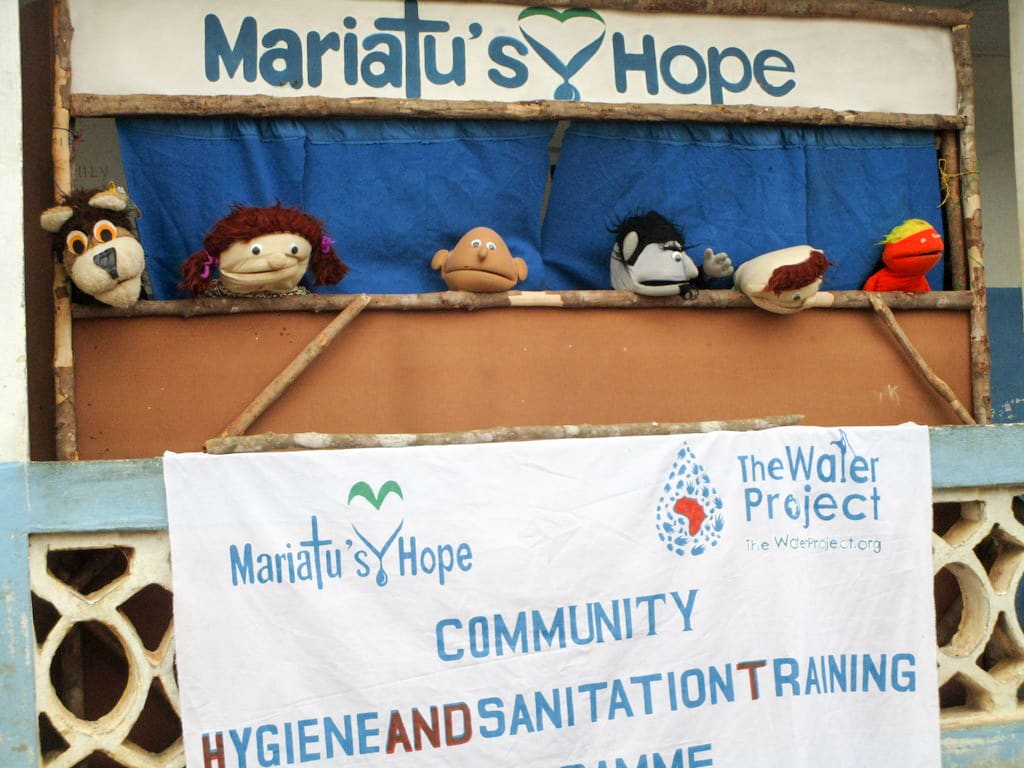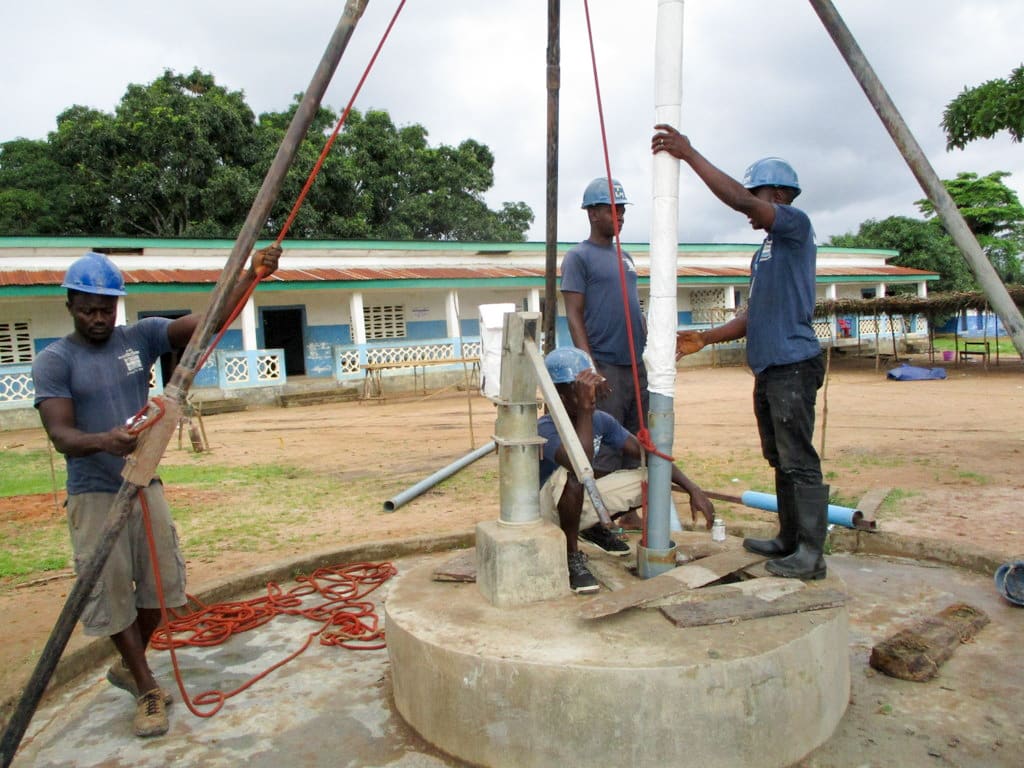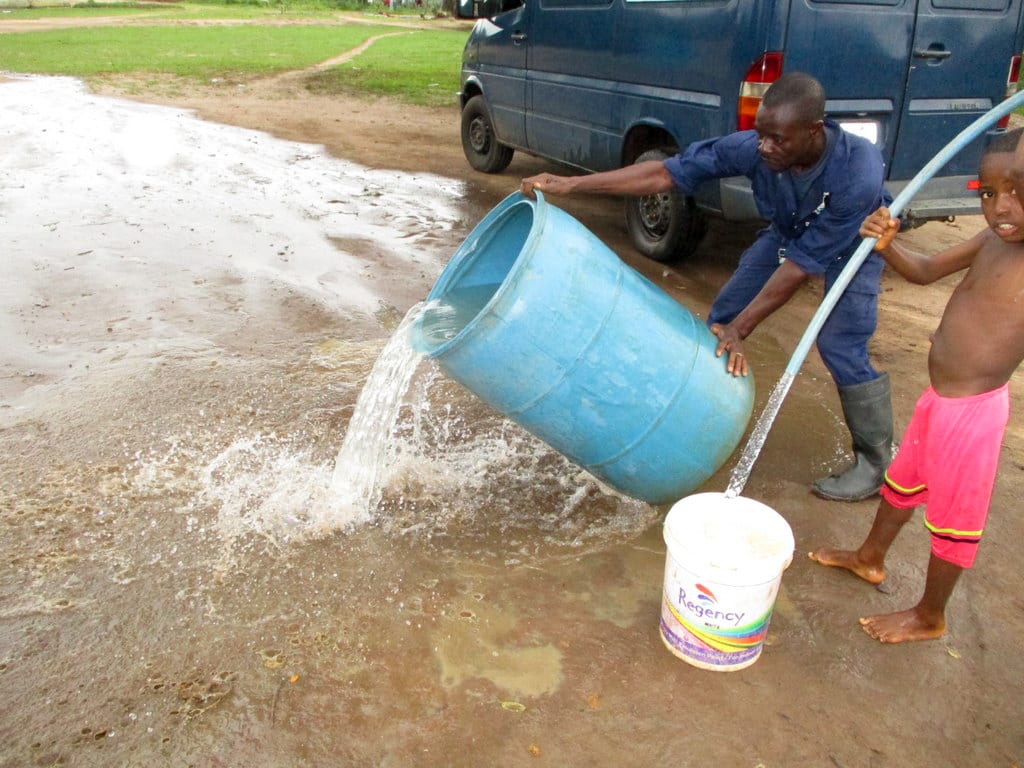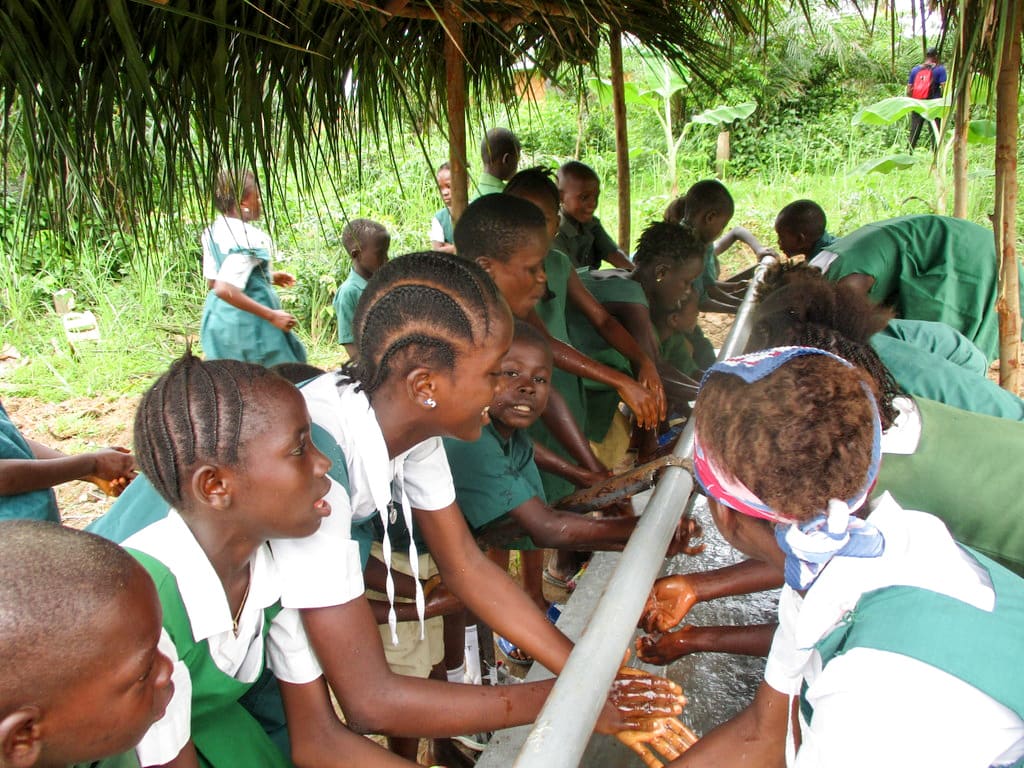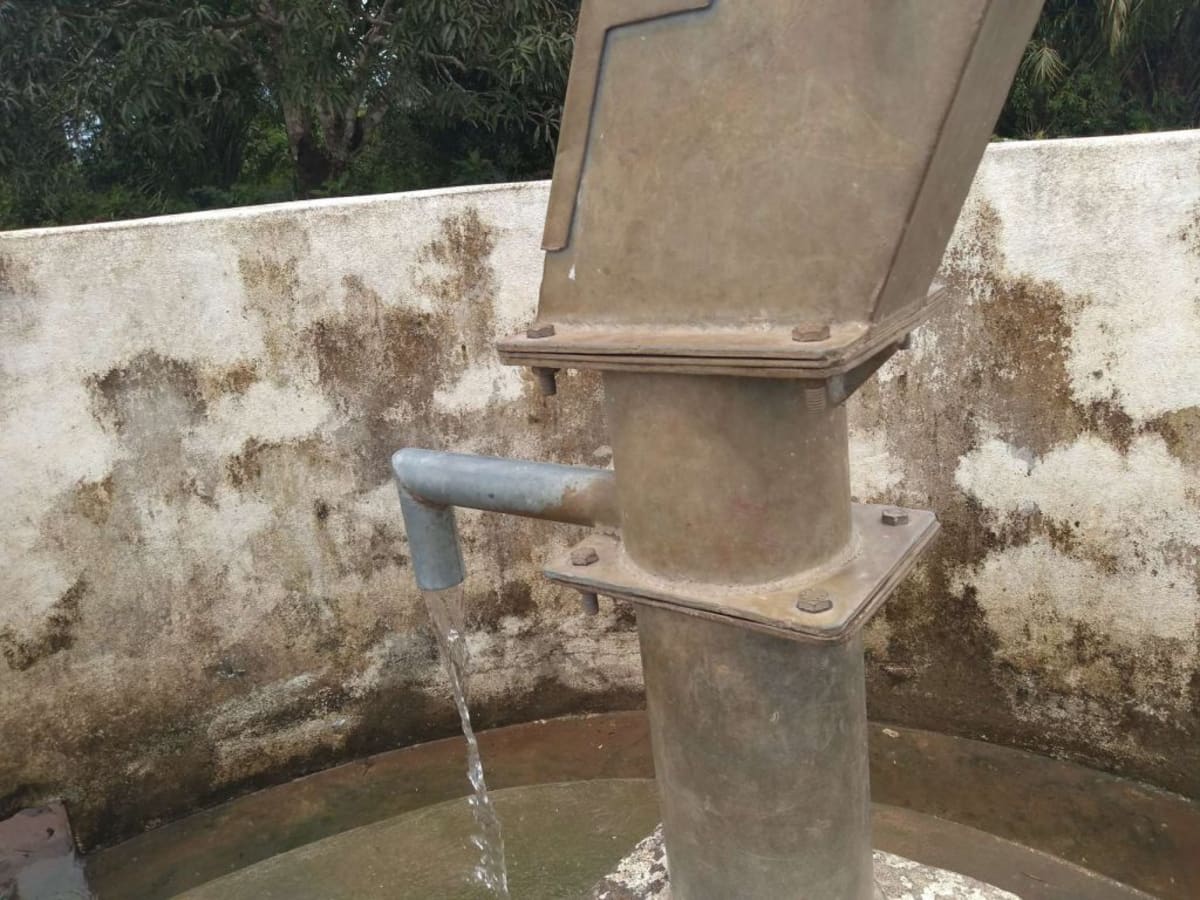The well at the school and the latrines were constructed by a local NGO. Before the project was complete, the school and community members were contacted by the NGO that the money ran out so they could not complete the well. We contacted the local NGO and were given the okay to go ahead and rehabilitate the well ourselves.
P.C. Bai Shebora Sheba Gbereh III Primary School started in 2007 with 96 students and three staff. Today, some 238 children attend the school with six teachers and two staff.
This village has three water wells and all of these wells are not far away from most homes. However, two of the wells are not functioning. And even the one that is functioning has very limited water quantity and is prone to drying up several months of the year.
So sometimes, the people have to trek a considerable distance to the swamp or the stream. Both are open to contamination, which increases the risk of people contacting waterborne illnesses. The swamp not only hosts expanses of surface water but an open hand-dug water point. Here, some community members have tied a bucket to a rope for hauling up water.
"From my point of view, the swamp water is not good for the people in this community and the water is milky with a very bad odor and because it is in the open and not necessarily controlled, the surrounding is not clean and prone to all sorts of contamination," said Thomas Lewis, reporting officer.
The one functioning well is beset by long lines - especially now during the dry season. People hoping for safe water must wait a long time to fetch it. So, many will opt for the easily accessible, but less safe swamp water.
When the school experiences water shortage, they are compelled to take kids out in search of water because they cannot afford to go without some. Both the teachers and the kids will miss valuable lesson time in the classes. This will result in loss of study time and poor performance on the part of pupils in the public exams.
The sanitation situation at the school is a bright spot. But the lack of water makes things difficult.
"I must confess that the shortage of water in this community is practically undermining our hygiene and sanitation status," Mr. Hassan Kamara, headteacher at the school said.
There are six latrines on the school - two each for the boys, girl, and teachers. Because of the relative supervision is given by the school administration, the sanitation condition is relatively good. The latrine environment is clean, the floor is dry with not many flies present, although the water shortage is compromising their condition. There are about three handwashing facilities for the latrines but two had no water in them when we checked.
What we can do:
Training
There will be hygiene and sanitation training sessions offered for three days in a row.
The hygiene and sanitation trainer decided it would be best to teach students and the surrounding community members about the importance of handwashing, building and using dish racks, and other sanitation facilities. Pictures will be used to teach the community how to discern between healthy and unhealthy hygiene and sanitation practices.
These trainings will also result in a water user committee that manages and maintains the new well. They will enforce proper behavior and report to us whenever they need our help solving a serious problem, like a pump breakdown.
Well Rehabilitation
We want to work on the well located at the school. Our team has decided to do the hard work of drilling a borehole by hand in the bottom of this well, which will not only increase the water quantity but will ensure its quality, too. A new well pad will keep contaminants out, and a new India MkII stainless steel pump will provide easy and safe access to the clean water inside.
This community has been drinking dirty swamp water and suffering the consequences. With our rehabilitating this open well, the students and the surrounding community will be provided with plenty of safe, clean drinking water.

 Protected Dug Well
Protected Dug Well













